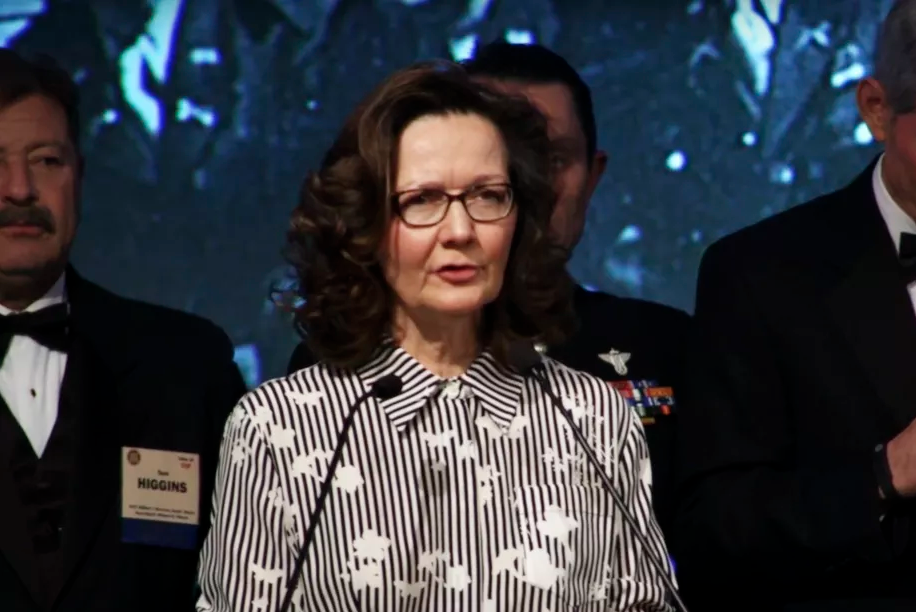Gina Haspel is the CIA's first female director — why aren't more female agents getting promoted?

CIA deputy director Gina Haspel has been promoted to director of the federal agency, the first-ever woman to hold the top position.
President Trump made the announcement Tuesday after firing Secretary of State Rex Tillerson and replacing him with CIA director Mike Pompeo.
“Mike Pompeo, Director of the CIA, will become our new Secretary of State,” Trump tweeted. “He will do a fantastic job! Thank you to Rex Tillerson for his service! Gina Haspel will become the new Director of the CIA, and the first woman so chosen. Congratulations to all!”
Mike Pompeo, Director of the CIA, will become our new Secretary of State. He will do a fantastic job! Thank you to Rex Tillerson for his service! Gina Haspel will become the new Director of the CIA, and the first woman so chosen. Congratulations to all!
— Donald J. Trump (@realDonaldTrump) March 13, 2018
According to Time, Haspel said in a statement, “After thirty years as an officer of the Central Intelligence Agency, it has been my honor to serve as its Deputy Director alongside Mike Pompeo for the past year. I am grateful to President Trump for the opportunity, and humbled by his confidence in me, to be nominated to be the next Director of the Central Intelligence Agency.”
Haspel has worked for the CIA since 1985, working in both undercover and leadership positions, and has a controversial past, overseeing the torture of prisoners in Thailand, one of which was waterboarded 83 times in one month, according to the New York Times. The practice of waterboarding involves strapping a person to a board that’s tilted downward at the head and pouring water on their face, triggering the sensation of drowning.
Mediaite reported that in 2005 Haspel ordered the destruction of footage documenting the torture, which is currently illegal, but that Trump has said “absolutely works” in the fight against ISIS.
Haspel’s promotion is significant for breaking the glass ceiling at the CIA. According to a 2016 report by Newsweek, women comprise 45 percent of the CIA workforce and 34 percent of leadership roles — yet Haspel will be the first to fill the top job.
Per the magazine, between 1980 and 2012, female representation in midlevel to upper-midlevel positions — like team chiefs or deputy team chiefs — rose from 9 to 44 percent, according to a 2013 report led by former Secretary of State Madeleine Albright. “But in 2012, just 19 percent of agency officers promoted to executive-level jobs in the Senior Intelligence Service (SIS) were women, down from around 30 percent in previous years. The report sounded the alarm for “significant reforms” and said that “not maximizing women’s talents and expertise directly and negatively impacts the mission,” the publication reported.
So why is Haspel’s promotion such a coup? In her report, Albright, who led a 2012 initiative called Director’s Advisory Group (DAG) on Women in Leadership, found “there is no single reason why CIA women are not achieving promotions and positions of greater responsibility and that organizational and societal challenges factor into the issues affecting women.”
Those challenges include (surprise!) workplace sexism and harassment, inflexibility, and poor work-life balance but the report also notes that solely considering these factors would be “too simplistic.”
Other key findings: Compared to men, female CIA employees don’t tend to seek career advice from their supervisors, turn down assignments due to long hours, and undervalue their qualifications which prevent them from seeking opportunities. Women are also likelier to take advantage of flexible workplace arrangements — with the support of their managers — but are denied transparency as to how doing so will impact their careers. And women married to male CIA members more often turn down assignments (compared to their partners) when conflicts of interest arise.
On an anecdotal level, female CIA employees also experience classic gender discrimination. CIA analyst Gina Bennett and mother-of-five told Newsweek that colleagues have reported being told they’re too pushy, emotional, and speak too much.
“Institutional sexism has always been used to justify gender biases,” Donna Lent, president of the National Women’s Political Caucus, a grassroots organization that supports female political candidates, tells Yahoo Lifestyle. “Women are not unqualified for the same leadership positions as men but they might be denied training and educational opportunities that get them there.”
And after Haspel’s historic achievement, Lent says she’ll likely face another roadblock. “The question now is, will she be held to a higher standard because she’s a woman?”
Read more from Yahoo Lifestyle:
Donald Trump Jr.’s chocolate bunny ‘interview’ is a hilarious new meme
The most pressing question of Women’s History Month: What is feminism in 2018?
The reason was simple — Trump won: Why 9 women decided to run for political office
Follow us on Instagram, Facebook, and Twitter for nonstop inspiration delivered fresh to your feed, every day.
